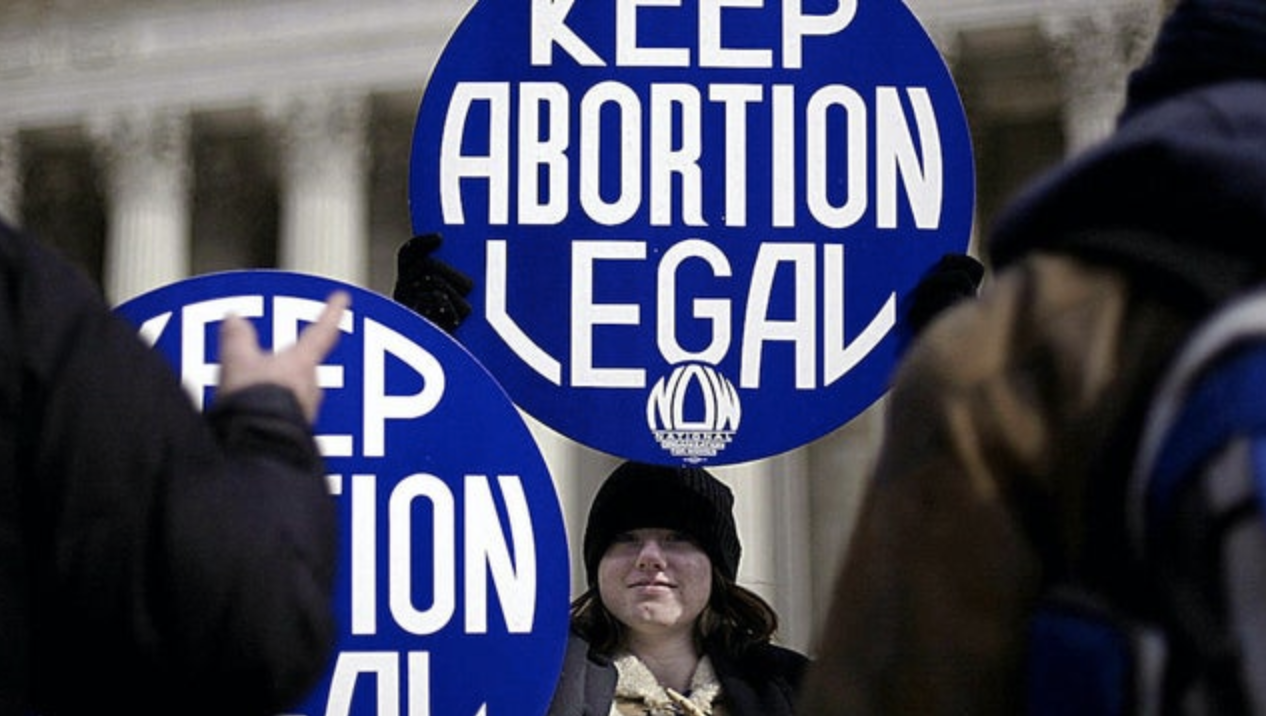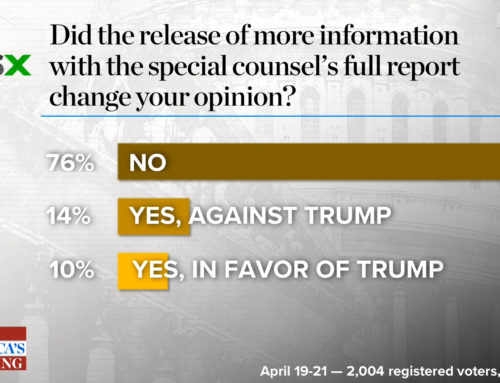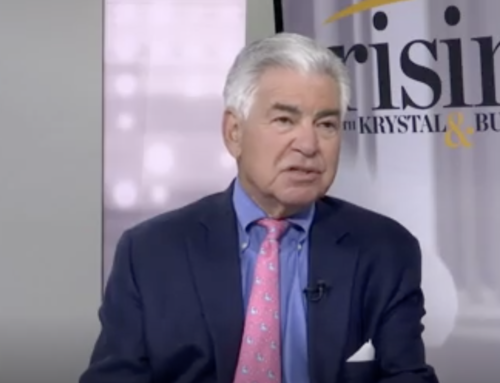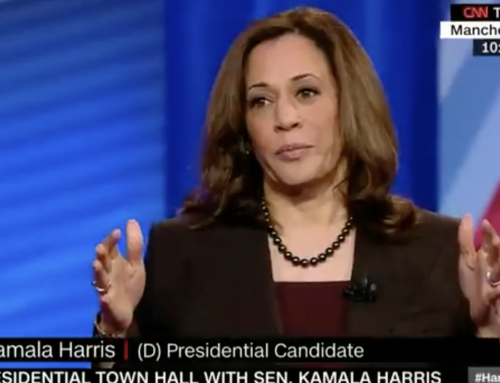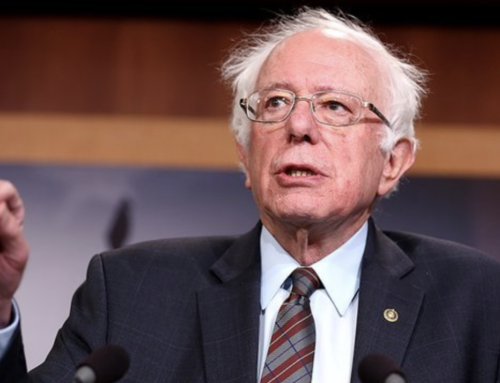Democrats are gearing up to use abortion rights as an attack against Republicans in 2020, seeking to paint the party as too extreme after the passage of sweeping laws restricting the procedure by GOP legislatures across the country.
Presidential contenders, including Sen. Kirsten Gillibrand (D-N.Y.), are already taking the issue head-on, most recently joining the Democrats’ condemnation of a comprehensive abortion ban signed into law in Alabama that bans the procedure in almost all circumstances, including rape and incest.
Democratic groups are mobilizing as well, hoping to put the abortion debate front and center in state and local races in 2020 as they look to put Republicans on the defensive at a time when the GOP lost the House last year, in large part by losing suburban female voters.
Abortion was already expected to be a key issue in 2020 as anti-abortion rights advocates grow hopeful of overturning the landmark Roe v. Wade decision in the Supreme Court after the appointment of two new conservative justices by President Trump.“We are buckled in. We are ready to go, but we’re not going to be playing defense,” Jennifer Holdsworth, a senior political strategist for the Democratic firm MWWPR, told The Hill.
Holdsworth added that groups such as Planned Parenthood Action Fund, NARAL Pro-Choice America, the Center for Reproductive Rights, and individual state organizations in Ohio, Missouri, Georgia and Alabama would help “lead the fight.”
These efforts are especially likely to concentrate at state and local levels. Though Democrats took over the House last year, gaining a net of more 40 seats and getting a record number of Democratic women elected to Congress, they failed to get the wave in state legislatures some had hoped for.
Christina Reynolds, vice president of communications at EMILY’s List, which works to elect Democratic women who support abortion rights to public office, said the organization will continue to target races in state legislatures in the wake of the abortion restrictions.
“This just highlights the importance of state legislatures, of what they can do, of why we need to make sure those elections are just as important as the federal ones and why we need people to run for them,” Reynolds told The Hill.
“We tripled the size of our state and local staff last year,” Reynolds added. “We’ll continue to grow that effort to help flip some of those legislatures and keep the focus there.”
Reynolds used the Nevada Assembly, which is the nation’s first majority-female state legislature, as an example of the impact of electing more women who support abortion rights after the state’s assembly passed legislation on Wednesday removing some requirements to obtain an abortion.
Among the states that abortion rights groups plan to target are those that have passed legislation restricting abortions, including Alabama, Georgia, Ohio and Missouri, where Gov. Mike Parson (R) signed legislation on Friday restricting abortion at eight weeks, including in cases of rape and incest.
Besides helping candidates endorsed by abortion rights group, much of the effort will be geared toward turnout, amid rising fears that the Supreme Court could step in to overturn Roe v. Wade after Trump’s appointment of Brett Kavanaugh and Neil Gorsuch.
Planned Parenthood, the American Civil Liberties Union (ACLU), NARAL Pro-Choice America, the Women’s March and other groups held demonstrations across the country this week that attracted thousands of participants calling for the protection of abortion rights.
Kelly Dietrich, the founder of the National Democratic Training Committee, which trains Democratic candidates to run for office, said the party’s candidates will likely take a page out of the GOP playbook on abortion rights to further cement their stance in the debate.
“Another thing Republicans do very well is that they’re passionate, and they say, ‘This is what I believe. If you don’t like that, OK, don’t vote for me,’” Dietrich said.
“I think we’re seeing a lot more Democrats become a lot more comfortable not being all things to all people. Standing up and saying, ‘I believe in a woman’s right to choose. If you don’t like that, I’m sorry. My door is always open, but that’s what I believe,’” he said. “We’re looking for a leader. We want someone who’s not afraid or apologizing and is out front on this.”
Polls have shown voters oppose the restrictive abortion laws passed in Alabama and Georgia, which adopted legislation that would ban abortions once a heartbeat is detected, generally six weeks into pregnancy.
A survey from Morning Consult and Politico released on Wednesday found 56 percent of all respondents were against the bills passed in Alabama and Georgia, while 33 percent supported them.
Polling also shows that most Americans do not want Roe v. Wade overturned. Sixty-seven percent of Americans said the Supreme Court should keep the law as it is, while 28 percent said it should be overturned, according to a CBS News poll released this week.
But voters have also expressed openness to some restrictions on the procedure. A Gallup Poll conducted last year found that 60 percent of Americans said they supported abortion in the first three months, but support for the procedure declined for later trimesters.
Before being thrust into the defensive after the passage of Alabama’s sweeping anti-abortion laws, Republicans had been moving to paint Democrats as extreme on abortion in the lead-up to 2020. Strategists warned they were unlikely to retreat now.
Instead, the GOP appears poised to express reservations about the scope of Alabama’s law while still hoping to use abortion to energize the party’s conservative base.
President Trump last week called himself “strongly pro-life” with the exceptions of rape, incest and dangers to the mother’s health. He also urged Republicans to remain “united” against “the Radical Left.”
“The Radical Left, with late term abortion (and worse), is imploding on this issue,” he wrote.
Republican strategist Ford O’Connell said Trump will likely to focus on the issue of restricting late-term abortions, which are generally unpopular with the public.
“Trump’s been talking about this since the last year-and-a-half. He’s been saying late-term abortion is a travesty,” O’Connell told The Hill. “He’s going to stick to the late-term abortion and the federal judges.”
The president is also likely to continue to campaign on his promise of appointing more conservative judges and justices after the appointments of Kavanaugh and Gorsuch gave conservatives a 5-4 majority in the Supreme Court.
The abortion issue has proved to ignite evangelicals, a voting bloc that has remained loyal to Trump throughout his political career.
O’Connell said that if presented properly by Trump, the abortion issue could help Trump win vital swing states such as Florida, Pennsylvania, Wisconsin and Michigan — but also acknowledged the rise in enthusiasm from the left.
“If this is framed properly by the White House, it can be a very powerful issue,” he said. “When it comes to this issue, you’re watching both parties try to shake the bushes to make sure that they have full turn out on every possible issue that’s important to their coalition.”

